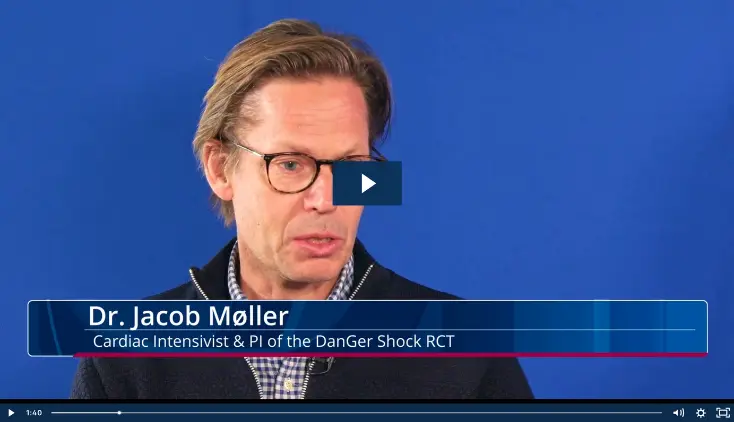Unloading, AMI Cardiogenic Shock
European Heart Journal Supplements - Prof. Giuseppe Tarantini: Timing and Treatment Strategies for Cardiogenic Shock
Professor Giuseppe Tarantini discusses his paper, “Timing and Treatment Strategies According to SCAI Classification in Cardiogenic Shock.” This is one of eight articles published in the European Heart Journal supplement “From Patient Selection to Escalation Strategies: Mechanical Circulatory Support in Cardiogenic Shock.”
“Cardiogenic shock is an extreme, time-sensitive condition,” Prof. Tarantini emphasizes. "The longer it takes to diagnose and treat cardiogenic shock, the higher the mortality".
Prof. Tarantini reviews how different MCS devices, including the intra-aortic balloon pump, extracorporeal membrane oxygenation (ECMO), and Impella® heart pumps, affect hemodynamics in patients in cardiogenic shock. He highlights a clinical example in which Impella reduced left ventricular end-diastolic pressure (LVEDP) by 50 percent, from an LVEDP of 35 mmHg before Impella support to an LVEDP of 17 mmHg after initiation of support.
He discusses three overarching treatment strategy principles:
- Mechanical circulatory support (MCS) is indicated when hypoperfusion is identified.
- Initiate MCS before percutaneous coronary intervention (PCI).
- Choose MCS according to the shock phenotype (i.e., isolated left ventricular failure, isolated right ventricular failure, biventricular failure, pulmonary failure, cardiac arrest).
Prof. Tarantini presents a case illustrating the role of MCS in unloading. The patient is a young woman with peripartum cardiogenic shock. She was turned down for surgery and also turned down for stenting. He chose to unload her heart with Impella and reports, “there was a remarkable reduction in left ventricular end-diastolic pressure. The unloading improved her coronary perfusion pressure and restored coronary flow without stenting”.
He emphasizes a theme of “the importance of being early” in the treatment of cardiogenic shock. He highlights the importance of early detection, early activation of shock protocols, early intervention in shock patients, and early recognition of modifiers to eliminate the causes of shock.
Sign Up for Latest Updates
NPS-4089


